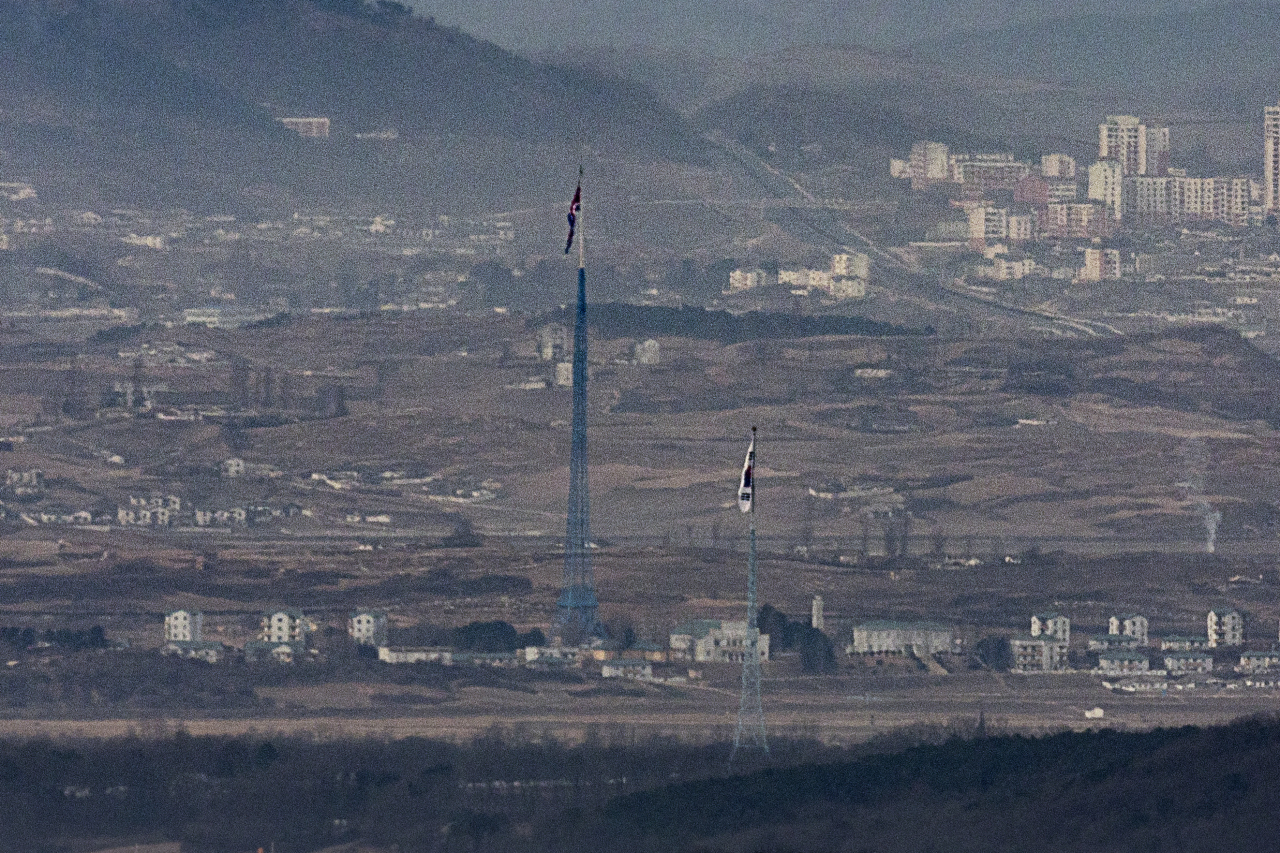Unification Ministry's NK election interference warning raises concerns
By Ji Da-gyumPublished : Jan. 4, 2024 - 16:51

A statement by the Unification Ministry on Thursday has raised concerns as it urged South Korean voters to remain vigilant against North Korea's attempts to interfere in the upcoming April legislative elections.
This remark seems inappropriate for the ministry, the primary role of which is to maintain peace on the Korean Peninsula, and is supposed to maintain political neutrality, according to political commentators here.
Stressing that North Korea has consistently sought to interfere in South Korean elections, the ministry said it is "crucial for our people to clearly recognize and remain vigilant against North Korea's attempts to interfere in our elections."
"The government strongly condemns North Korea's malicious intention to sow discord in our society and make it clear that such endeavors will never succeed," it said.
Political commentator Lee Jong-hoon questioned whether such a statement by the ministry was necessary, stressing that the public here is already sufficiently familiar with North Korea's interference to not need reminding nor requiring lessons about its danger.
In South Korean political parlance, there has been the term, "North Wind," which encapsulates the substantial impact of North Korea on key political events in the South, particularly during election cycles.
"However, the current reality indicates that the impact of North Korea as a variable during elections -- whether direct or indirect -- (actually) seems less significant than in the past," Lee told The Korea Herald.
"People have become more aware through experience, and, in my view, such government or Unification Ministry-level commentary might not be necessary, since it appears to have little influence," Lee said.
Lim Eul-chul, a professor of North Korean studies at Kyungnam University in Seoul, said he understood the intent behind the Unification Ministry's statement.
The ministry also noted that Pyongyang has a track record of interfering in elections.
During the lead-up to the 2012 legislative elections, North Korea conducted various propaganda campaigns targeting South Korea. Preceding the 2016 legislative elections, North Korea jammed GPS signals. Additionally, in the context of the 2020 general elections, North Korea attempted intervention by carrying out four consecutive ballistic missile launches in March 2020.
However, Lim also emphasized that the South Korean government should be mindful that recent remarks made by the North Korean leader and his sister may have multiple objectives.
"In my personal view, actions like Kim Yo-jong's statement do not appear to solely target legislative elections or attempt to interfere in our domestic politics. While it is conceivable that (North Korea) attempts to criticize the complex and chaotic nature of South Korean domestic politics, the specific benefits of overt interference remain uncertain," Lim told The Korea Herald.
Lim referred to Kim's sarcastic response Wednesday to President Yoon Suk Yeol's New Year's Day address, in which she suggested Yoon's policies have justified the North's development of its nuclear weapons program.
"Nevertheless, it appears there is an intention to amplify security concerns among the South Korean people, aimed at fostering public sentiment of opposition to exert pressure for a shift in the Yoon Suk Yeol government's North Korea policy. Additionally, there might be an aim to bolster the legitimacy of prioritizing the enhancement of nuclear capabilities."
Yang Moo-jin, a professor at the University of North Korean Studies, also highlighted the inappropriateness of the ministry's statement, emphasizing its discordance with the pivotal role the Unification Ministry plays. He underscored that the statement, by its nature, has the potential to escalate tensions on the peninsula further.
"The Unification Ministry bears the responsibility of stably managing the situation on the Korean Peninsula," Yang said. "While pointing out the potential for North Korea to interfere in our internal affairs, it is also imperative for the ministry to proactively consider fostering an environment conducive to dialogue and presenting substantive proposals for engagement."
The Unification Ministry's statement came after an escalation in bellicose rhetoric from North Korean leadership, which has been directly aimed at Yoon and his administration.
"North Korea has been attempting to escalate tensions on the Korean Peninsula and foster division in our society by issuing threats and slandering targeting us since the beginning of the year through Kim Yo-jong's statement following the year-end plenary meeting of the party," the statement read.
North Korean leader Kim Jong-un defined the inter-Korean relationship as having "become completely entrenched as a hostile state-to-state relationship and two belligerents in a state of war" in his speech delivered during a five-day year-end plenary meeting. Subsequently, the leader's sister Kim Yo-jong on Wednesday issued her statement specifically vilifying Yoon and his North Korea policy.






![[Weekender] How DDP emerged as an icon of Seoul](http://res.heraldm.com/phpwas/restmb_idxmake.php?idx=644&simg=/content/image/2024/04/25/20240425050915_0.jpg&u=)



![[Music in drama] An ode to childhood trauma](http://res.heraldm.com/phpwas/restmb_idxmake.php?idx=644&simg=/content/image/2024/04/25/20240425050929_0.jpg&u=)








![[Herald Interview] Mistakes turn into blessings in street performance, director says](http://res.heraldm.com/phpwas/restmb_idxmake.php?idx=652&simg=/content/image/2024/04/28/20240428050150_0.jpg&u=20240428174656)
